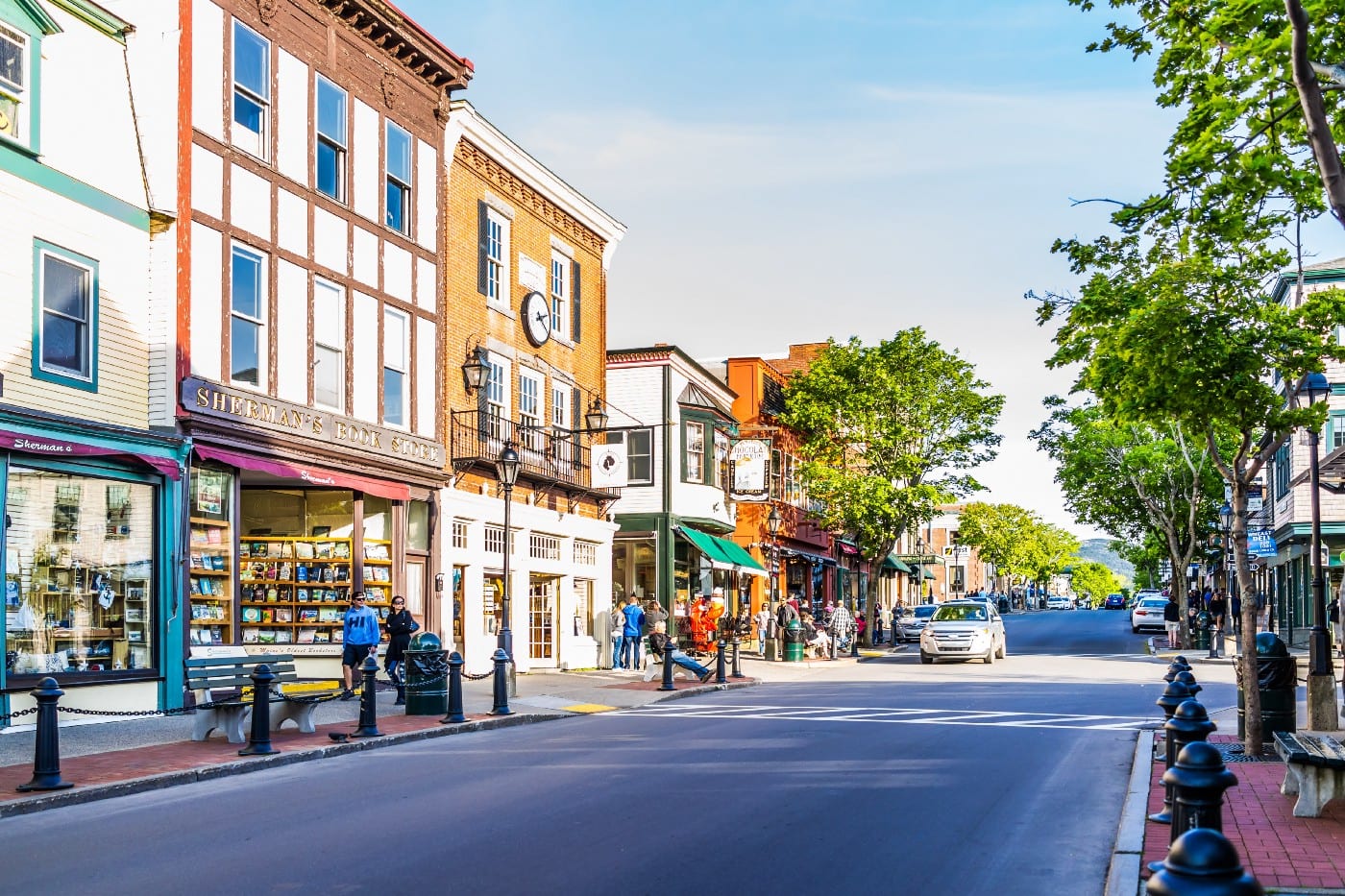5 ways cities, small businesses, and residents have helped keep the local economy afloat during Covid-19

Assaf Frances
Director of Marketing and Partnerships
Local economies nationwide were hit hard by the effects of Covid-19, and many are still struggling, even after a year. The city and state measures implemented to contain the virus forced many businesses to reduce their operations to a minimum, close their doors for long stretches at a time, or even permanently. Research by JP Morgan indicated that six months into the pandemic, nearly 50% of small businesses had a cash buffer of 15 days or less, and a year-over-year restaurant visits tracker by OpenTable showed an alarming decrease compared to 2019. As the US enters another phase of the pandemic with no end-date in sight, this situation bears devastating news to many local businesses.
So what can be done?
The newly approved Federal Stimulus Package and SBA programs are a good start, but money from these initiatives will take precious time to reach those who most need it. Therefore, to keep businesses afloat, local government authorities, residents, and businesses have stepped up over the past year to fill the “time is money and money is time gap” in both traditional and innovative ways.
Here’s a summary of examples of what cities and their partners across the country have been doing to help out:
You can read more here about how our local government partners are using Zencity to manage the effects of COVID-19 and improve crisis management.
1. Provide Business Stabilization Packages
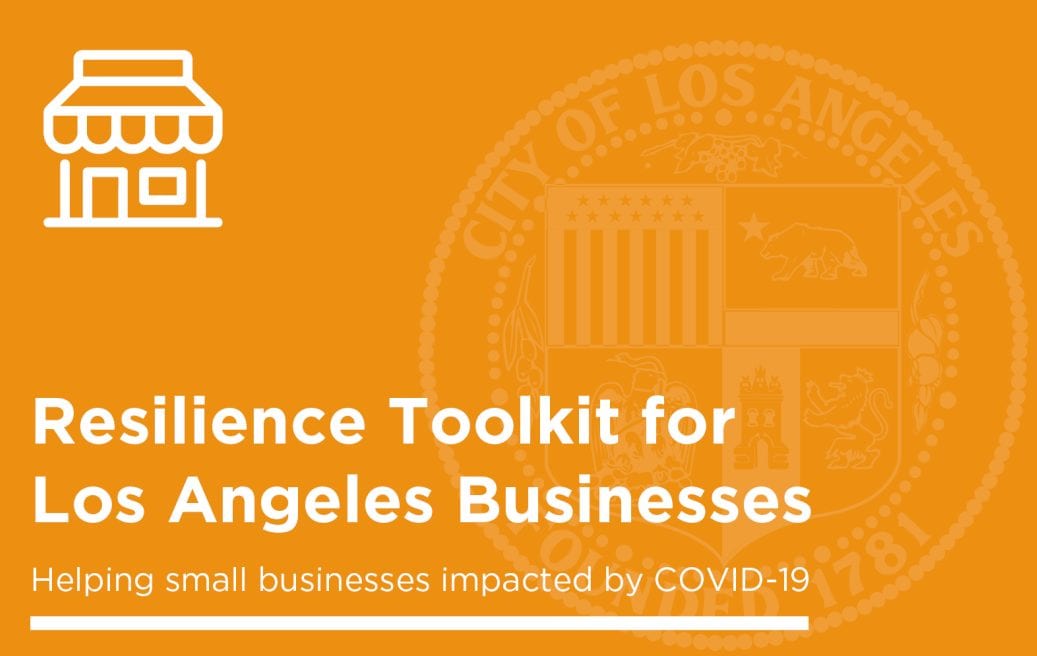
Local authorities have been dipping into their “rainy day” funds and creating benefit packages for businesses hurt by COVID-19. The key here is that these measures are usually effective immediately, providing businesses with the oxygen they need until federal funding is available. These packages may include several of the following:
- Zero-low interest loans (New York City, NY, Austin, TX)
- Emergency relief funds (Seattle, WA; San Francisco, CA; Denver, CO; Beaverton, OR)
- Public and private partnership funds (Birmingham, AL)
- Deferral of business and occupation taxes (San Francisco, CA, Seattle, WA)
- Moratorium on commercial evictions (San Francisco, CA, Los Angeles, CA)
- Employee retention programs (New York City, NY)
- Suspended rentals (Atlanta, GA)
Local governments would also be wise to share information about opportunities other organizations offer with their local businesses. Online tech giants like Facebook and Google have offered small and medium businesses free ad campaigns and cash grants. The Opportunity Finance Network has also been offering financing opportunities for small businesses by region. Be sure to check out what’s available in your area (a tip we got from our friends at ELGL).
Forbes magazine has created a continually updated list of these more formal packages for businesses to be aware of and other cities to draw inspiration from.
Notably, as these programs grow in number, making their availability and application process known and accessible to local businesses is crucial but could be challenging. Cities have been working hard at promoting these packages through online local community and business groups (see great examples from Estacada, OR, Perry, GA, and Beaverton, OR) and offering guidance and assistance in filling out the forms. This is particularly important for businesses run by the less tech-savvy or bureaucracy-proficient so that they can take advantage of these benefits as well.
2. Ease Curbside Regulation
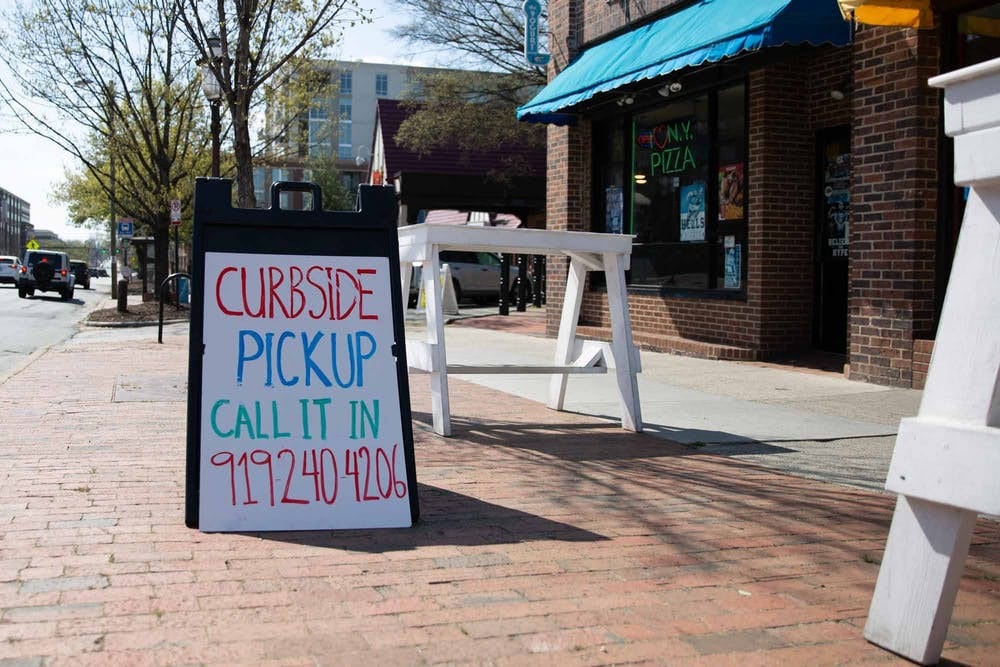
Once again, as restaurants may be restricted to pickup and delivery only, making these services accessible and quick can help them increase sales volume. A simple measure local authorities have taken to promote food pickup from local restaurants is waving on-street parking fees like the Town of Chapel Hill, NC, has done. In some places, such as Albany, NY, and Detroit, MI, the city created a Restaurant Carryout Zone Program that provides restaurants with a free on-street carryout area for their customers. The restaurants are expected to deliver the food to the car to observe social distancing with and between their clients.
3. Encourage and Incentivize Residents to Shop Local
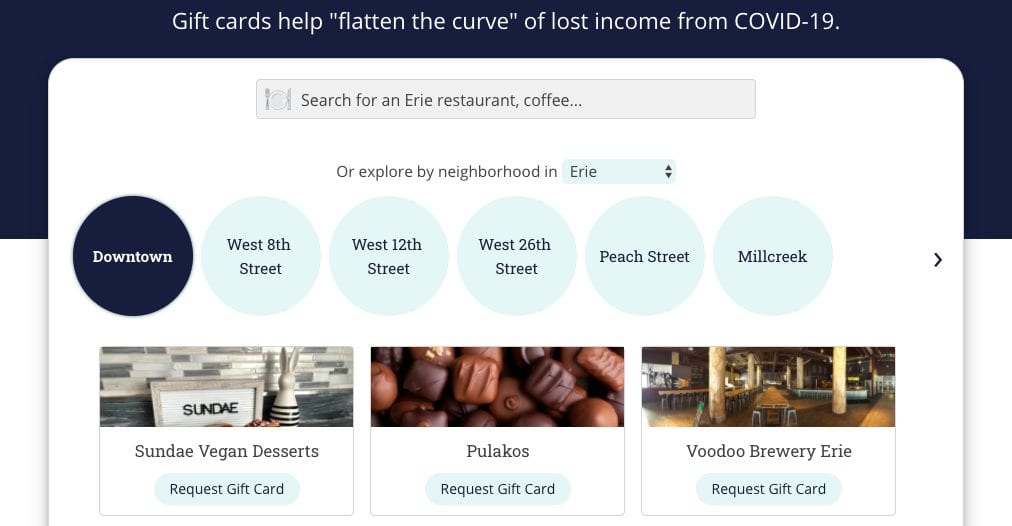
To provide businesses with immediate cash flow, many cities and businesses encourage residents to purchase prepaid gift cards for local shops, restaurants, and cultural venues (see examples from Erie, PA; Philadelphia, PA; Ottawa, Canada; Los Altos, CA). In other places like Burleson, TX, and Edmond, OK, local organizations offered matching funds to residents who purchased a gift card to incentivize them even further.
4. Use Your City’s Social Media for Promotion
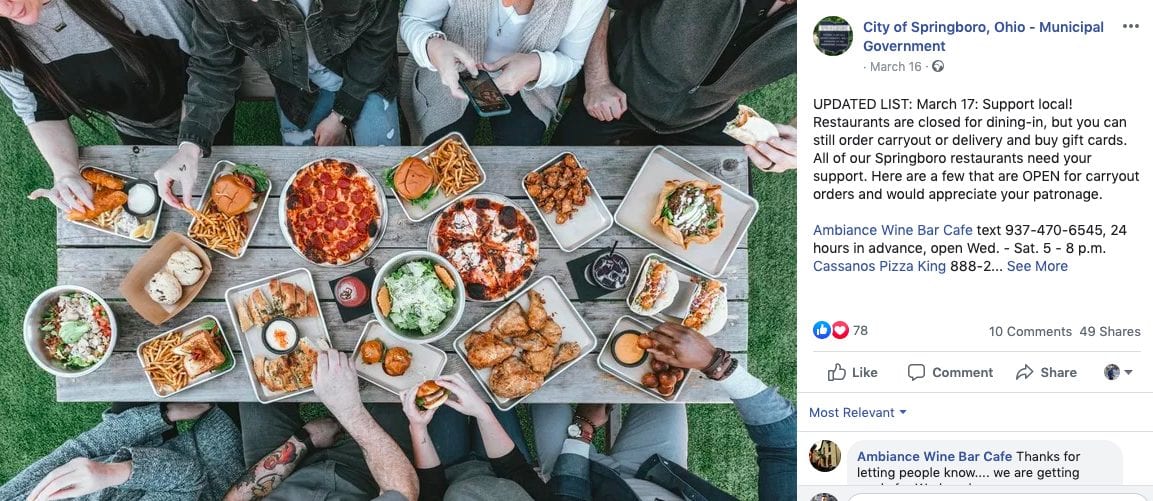
In cities of all sizes, we’ve seen local authorities using their significant online presence at this time to promote local businesses. Simply advertising a detailed list or map of restaurants and businesses, as the City of Chandler, AZ and the City of Springboro, OH did, can go a long way, as can shining a spotlight on a different venue each time, as did Doral, FL. In other places, as in this example from the Quad Cities Region in Iowa, the organization increased awareness of the issue by raffling online a free takeout meal from a different restaurant daily. Encouraging residents to engage with the posts directly improves their visibility and organic reach, exposing many more to the initiative and the restaurants that it promotes.
Check out our data-driven guidelines here for tips on how to ensure that your online crisis communications gain better traction and visibility on social media.
5. Help Your Businesses Get Creative (or don’t get in the way too much)
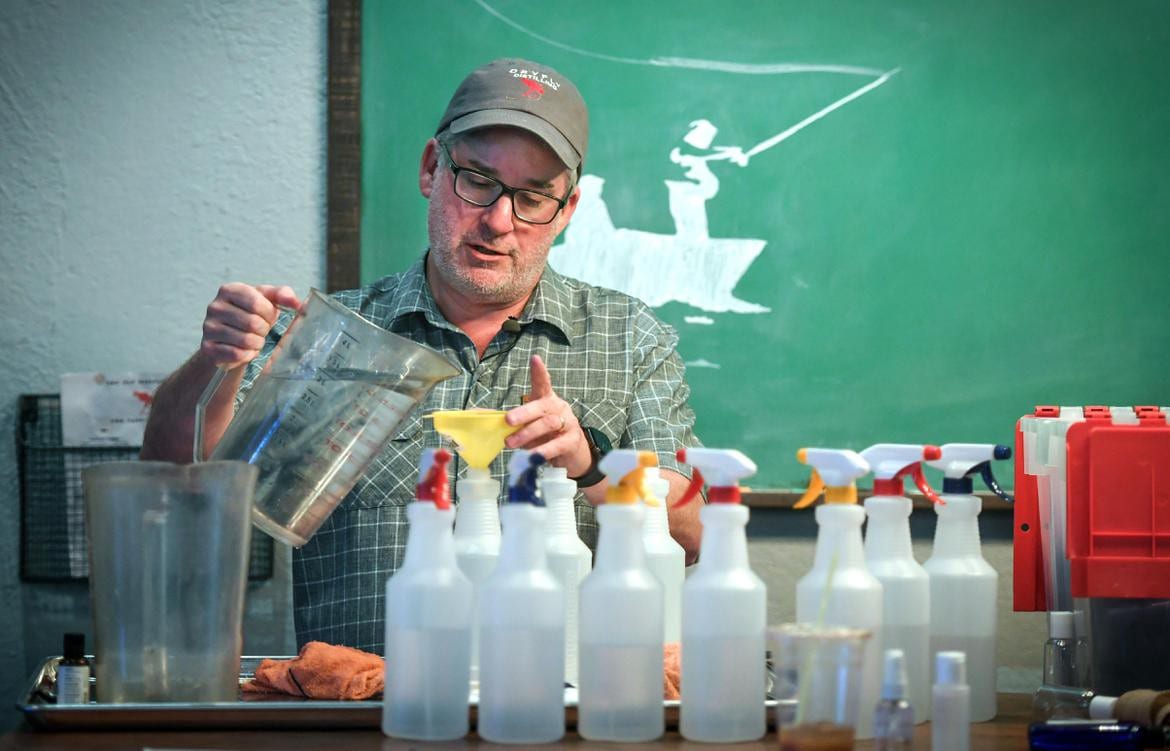
Despite the state of the outbreak, the creativity and camaraderie that local businesses are showing at this time is undoubtedly uplifting. Local gyms and private trainers are now experts at offering diverse online classes and even allowing members to rent out their equipment for the time being. Restaurants and bars are providing online cooking classes, mixology workshops, and alcohol deliveries, while bookshops are hosting online reading sessions for children and adults. Some of these businesses charge a fee for these services, while others enact a pay-as-you-wish policy; nonetheless, keeping their name and brand in the consciousness of their clients is vital.
Some other places have repurposed their facilities to fit the needs of the current situation and make some income along the way. At the start of the pandemic, distilleries were helping out with crisis mitigation efforts by producing hand sanitizers mainly for first responders and vulnerable populations, as these examples from Spokane, WA, and Lewisville, TX, show. Another great example still at play today is restaurants that have converted their dining space into food and produce markets, like in Long Beach, CA, to reduce the pressure on supermarkets and grocery stores. Newer initiatives, made possible by the Covid-19 vaccine, are businesses offering incentives to those getting vaccinated. In Cleveland, Ohio, for example, a local theater gives out free popcorn through the end of April to moviegoers with a vaccination card. Market Garden Brewery offers 10-cent beers to the first 2021 adults who bring their completed card. While these are all business initiatives, the county and city’s role in such cases is to consider easing (or ignoring) regulations when needed to encourage these and other innovative and adaptive solutions during these challenging times.
The examples we share in this post show that in order for the places that make our cities so great to bounce back from this pandemic, we need government, businesses, and residents to continually collaborate and provide each other with mutual support. We will continue to follow and share the great work of local authorities across the country as they adapt and respond to this new normal resiliently.
Check out our data-driven guidelines here for tips on how to ensure that your online crisis communications gain better traction and visibility on social media.
As you plan your stimulus fund allocation, make the most significant impact in your community with a robust community engagement strategy. Download our latest guide to learn more!
%20copy-1.png?width=544&height=120&name=Logo_black%20(1)%20copy-1.png)



